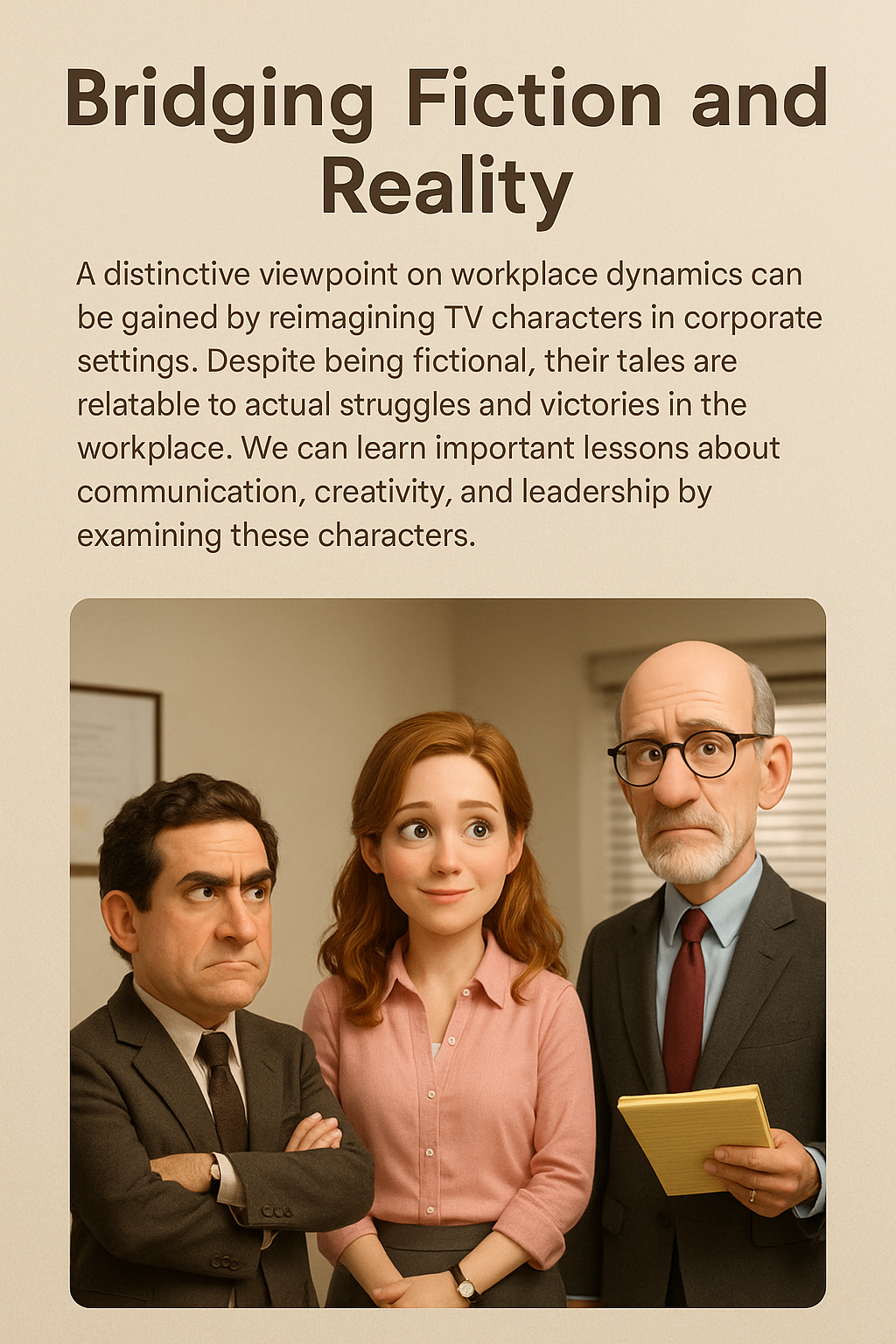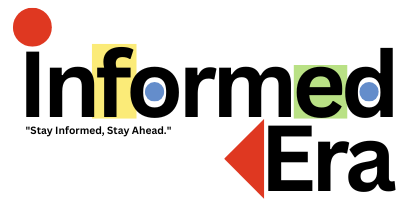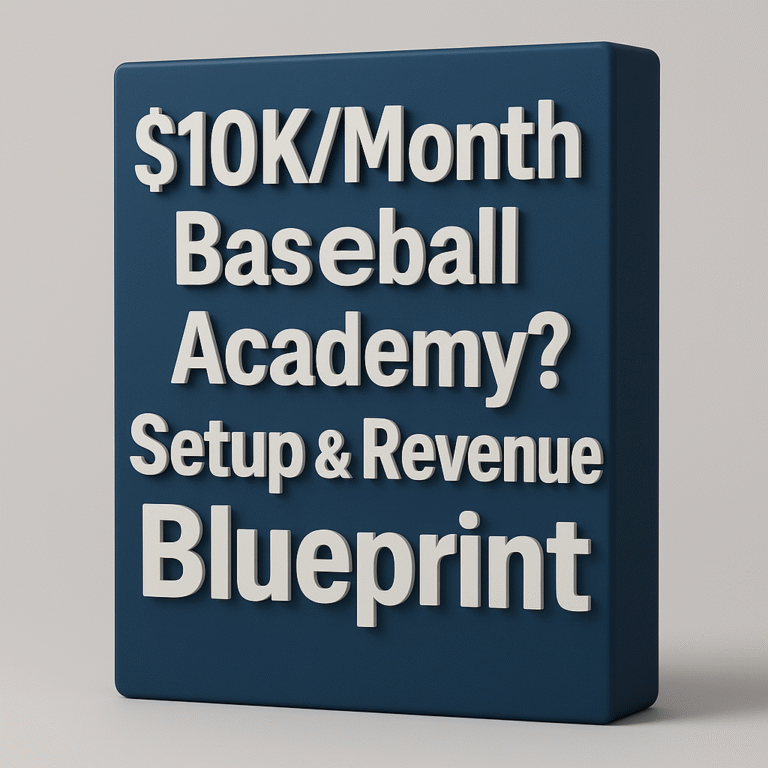
📚 Table of Contents
-
🎬 Introduction: When Fiction Meets the Boardroom
-
📊 The Influence of Media on Workplace Perceptions
-
🌟 8 TV Characters Reimagined in Corporate Roles
-
Leslie Knope as COO
-
Walter White as CSO
-
Michael Scott as HR Head
-
Olivia Pope as Comms Director
-
Don Draper as CMO
-
Sheldon Cooper as R&D Head
-
Jessica Pearson as General Counsel
-
Tony Stark as CTO
-
-
🧪 Case Study: How TV Shaped Real Career Choices
-
📈 Workplace Lessons from Fictional Characters
-
🙋 FAQs: TV Characters in Corporate Settings
-
🎯 Conclusion: Bridging Fiction and Reality
-
📣 Bonus: Related Post You’ll Love
🎬 Introduction: When Fiction Meets the Boardroom
Ever imagined your favorite TV characters navigating the complexities of corporate life? From the meticulous strategies of Walter White to the unyielding determination of Leslie Knope, these characters offer a unique lens into workplace dynamics. This exploration not only entertains but also provides insights into leadership, teamwork, and organizational behavior.
📊 The Influence of Media on Workplace Perceptions
Our perceptions of work environments are greatly influenced by media representations. According to a Harvard Business Review survey, 65% of workers think that the media shapes their expectations for behavior at work. Television programs such as “The Office” and “Mad Men” have established standards for workplace culture, management approaches, and employee relations.
🌟 8 TV Characters Reimagined in Corporate Roles
1. Leslie Knope (Parks and Recreation) – Chief Operating Officer
Leslie’s unwavering commitment and organizational prowess make her an ideal COO. Her ability to inspire teams and drive projects aligns with the demands of operational leadership.
2. Walter White (Breaking Bad) – Chief Strategy Officer
Walter’s analytical mind and strategic planning skills position him as a formidable CSO. His capacity to foresee challenges and devise solutions is invaluable in corporate strategy.
3. Michael Scott (The Office) – Head of Human Resources
While unconventional, Michael’s emphasis on employee morale and team cohesion could bring a fresh perspective to HR, focusing on culture and engagement.
4. Olivia Pope (Scandal) – Director of Corporate Communications
Olivia’s expertise in crisis management and communication would be instrumental in maintaining a company’s public image and handling internal communications.
5. Don Draper (Mad Men) – Chief Marketing Officer
Don’s creative vision and understanding of consumer behavior make him a natural fit for leading marketing initiatives and brand development.
6. Sheldon Cooper (The Big Bang Theory) – Head of Research and Development
Sheldon’s intellectual rigor and dedication to research would drive innovation and product development within a corporate R&D department.
7. Jessica Pearson (Suits) – General Counsel
Jessica’s legal acumen and leadership experience equip her to oversee corporate legal affairs, ensuring compliance and guiding legal strategy.
8. Tony Stark (Iron Man) – Chief Technology Officer
Tony’s technological innovations and forward-thinking approach would spearhead a company’s tech advancements and digital transformation.
🧪 Case Study: Media’s Impact on Career Choices
A survey by CareerBuilder found that 30% of professionals were influenced by TV characters in their career decisions. For instance, the portrayal of forensic science in “CSI” led to a surge in forensic science program enrollments, highlighting the media’s role in shaping career aspirations.
📈 Workplace Lessons from Fictional Characters
-
Leadership Styles: Characters like Leslie Knope and Jessica Pearson demonstrate the balance between empathy and authority.
-
Innovation and Strategy: Tony Stark and Walter White showcase the importance of innovation and strategic foresight.
-
Communication Skills: Olivia Pope emphasizes the power of effective communication in crisis management.Job Search | Indeed
🙋 FAQs: TV Characters in Corporate Settings
Q1: Can fictional characters provide real workplace insights?
Absolutely. While dramatized, their experiences often mirror real-world challenges and solutions.
Q2: How does media influence workplace expectations?
Media shapes perceptions of leadership, culture, and career paths, impacting employee expectations and behaviors.
Q3: Are there studies on media’s impact on career choices?
Yes. Research indicates a significant correlation between media portrayals and individuals’ career decisions.
 .
.
📣 Explore More
Interested in how creative approaches influence professional success? Check out our previous post:
👉 Job Interview or Rap Video? This Style Went Viral
- Grow a Baseball Newsletter: 7 Job Tips That Drive Subscribers - August 5, 2025
- Earn Passive Income: Build a Baseball eBook for Families - August 4, 2025
- Turn Your First $1K Baseball Hustle Cash Into Wealth - August 4, 2025







